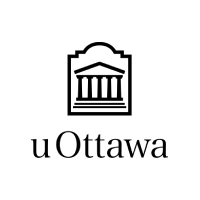We live in the age of information and communication. By studying how information is collected, produced and disseminated today, you will better understand communication processes in different contexts: social, cultural, political, organizational, economic and legal. In this program, you will notably develop critical thinking in order to evaluate the nature and impact of technologies in today’s society, in organizations and on our interpersonal relationships. You will have the opportunity to be exposed to the most recent developments in the field of communication (communication strategies, digital media, evolution of the media industry, advertising, crisis communication, negotiation, etc.). The courses touch on the two main areas of communication: media study and communication.
Political science:
Politics is omnipresent in our lives. Political science aims to describe, analyze, understand and evaluate power relations and the principles that govern life in society. She is interested as much in the structures and institutions that define them as in the ideas and practices that drive them. It studies everything that influences political life and institutions (ideologies, groups, social movements, etc.), on a local, regional, national and international scale.
Our programs provide solid training in political science and promote critical reflection on high-profile issues, such as citizenship, identity, political participation, globalization and development, governance and the State, ethics and democracy. A discipline open to numerous theoretical and methodological trends, political science is in constant interaction with other disciplines. At the School of Political Studies at the University of Ottawa, you can deepen your knowledge in four fields of political science: political thought, Canadian and Quebec politics, comparative politics, as well as international relations and world politics.
This program is offered in French and English.
NOTE: The University of Ottawa offers a partial tuition fee waiver scholarship to French-speaking international students. This significant contribution to financing their study project allows for a considerable reduction in tuition fees.
To benefit from the partial exemption scholarship, international students must:
- accept an offer of admission to a program of study offered in French;
- register full-time and take at least 3 courses (9 credits) per term in French.
OR
- accept an offer of admission to a program in English offering the French Immersion Program;
- meet the requirements of the Plan; And
- register full-time and take at least 3 courses (9 credits) per term in French.






